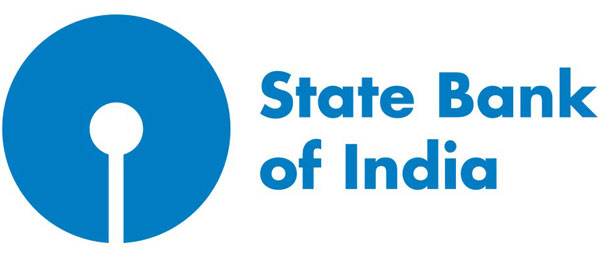Education loan in India – The education loan system in India has reached a pitiful situation with high interest rates and less repayment tenure.
Are you planning to take a student loan for your graduation degree or have already made a list of foreign institutes?
Well, you will first need to check if you can repay off the loan once you have graduated.
India is a country where education is much valued and considered as the first step towards achieving anything big in life, be it the hopes of having your dream job, enjoying a lavish lifestyle, financial security or living the good times.
While most students in India plan for taking up education loans as early as in higher secondary classes, it is very important to know not only the eligibility criteria which can be tricky, tedious and time-consuming at times but the ways you can shed the heavy burden of loan from your shoulders even if you do not have a job right after your graduation.
Students aged between 16 and 26 are eligible for acquiring education loans.

The eligibility of a student for loan is measured by several banks through their online eligibility calculators, varying from one bank to the other.
Loans have become common in the country whenever there is a big incoming expenditure. With tuition fees for colleges soaring high every year, and private universities demanding more and more money for admissions, education loans have become a must for many students.
If you think it is simple to visit a bank and ask for education loans, you are wrong.

Though every bank has special schemes and policies related to loans, students need a co-applicant such as a parents, spouse or siblings. They might even have to nominate a third-party guarantor if the loan amount is between Rs. 4-7.5 lakh while loans above Rs. 7.5 lakh will need you to give collaterals or security.
While in 2011, the Indian Banks Association came up with recommendations that students who are on the merit list in their college can be free from collaterals yet, this is again a hassle for the students who have to not only go through parents and peer pressure for good grades, but their cut-off lists are also deciding factors for banks to set collaterals on their loans.
If you think the process of applying for loans is tedious, consider the aftermath which can be scary enough. You will have to repay off the loan within six months to one year within the completion of the course, a default in which will affect the credit history of the student and s/he might have problems gaining access to loans for future. The default in payment will also affect the credit history of the co-applicant. You will have to repay the loan with or without a job after graduation!
In the case of studying abroad, the lender will recover the loan amount from the co-applicant which in most cases, are the parents. A foreign education may also entail taking up a part-time job or getting a scholarship. You will also need to insure your loans if you are planning to pursue international education. If there are any untoward incidents happening with the students abroad for instance personal accidents, sickness or rehabilitation for drug abuse and the education loan is not secured, the students’ family has to continue paying the education loan. Some may even have to keep their assets such as their house, apartments/flats, non-agricultural land and fixed deposits as collateral, where financial crunches can lead them to re-mortgage their houses, if the loan is not insured.
While the education loan scenario is in a pitiful state in India, some exceptions are always there. There are some options you will need to consider before applying for loans to make the process comparatively simpler:
Banks affiliate with Universities
Many national and international universities associate themselves with banks or other financial institutions that offer education loans, only to subsidise the interest amount and increase the repayment tenure for students. Securing a proper job is essential after graduation so that they can pay the entire loan amount and these associations come in handy at such times.
Finding Out Loan Providing Institutes
When looking for loans, there are several banks and financial as well as educational institutes can come to your aid but you will need to compare rates of interests, eligibility criteria and margins of interest of one bank against some others to prevent yourself from getting deceived by banks that provide exceptionally low interest rates.
Checking if the loan amount suffices your education
With tuition fees of colleges ranging between Rs. 5- 50 lakhs, you must assess if all the costs viz. books, travel expenses, food and hostel rent or laptops (if needed) are covered in the loan amount. You must plan out your expenses well so that you do not end up asking for more loan amount as it will be a huge hassle during repayment.
Evaluate the funds you already have
You must be aware of the scholarship options in your choice of university as funding though scholarships will help reduce the loan amount and subsequently ease out the excessive burden of repayment. For this, you first have to assess all your funds before deciding on how much loan to apply for.
Deciding on the co-applicant
Though any one of the parent is the most obvious consideration while selecting on a co-applicant, some banks, however allow siblings or relatives earning income. The co-applicant’s earning capacity also needs to be catered to, as if the loan is not repaid by the student, it will be recovered from the co-applicant’s pocket.
Assessing your capacity to repay loan
While you select your course and institute, you also need to chalk down the campus placement facilities or jobs that the course might aid you in offering as well as the starting salary of the job. It is always better to pay off the loan as early as possible otherwise the interest rates vary and you end up paying all your savings for the loan that you had taken years ago. Deciding your repayment capacity before applying for the loan is a must.
Identify all your repayment options
You may choose to repay through EMIs (Equated Monthly Instalment) or intend to pay in the 6 months-1 year tenure after graduation (moratorium period). However, paying the loan is easier through EMIs than during moratorium as you can lessen the monetary burden off your shoulders faster.
Keep All Documents related to Loan Ready
Asking your lender for the documents you need to provide for loan and keeping them in place before the loan application will be helpful. Apart from the usual identity, age, address, co-applicant’s relationship and income proof, you will have to provide the admission letter with the fee structure of your college. For foreign education, your visa approval papers, GRE, SAT and/or GMAT scores are also required as additional documents.
Check if you have sufficient assets for security
Ensure that you have enough valuable assets to mortgage when applying for loan. They may help in getting a reduced rate of interest.
While Indian banks offer loan upto Rs. 15 lakhs,(according to the new government scheme on Comprehensive Education Loan) depending on the course and the college, it is debatable if these loans cover fees for tuition, examination, labs, hostel rent, library money and other expenses such as books, equipment, instruments and in some cases uniforms.People who study abroad may find it difficult to meet their daily travel expenses, caution deposit and refundable deposit, study tours or project work.
Even though students seeking loan upto Rs. 4 lakhs do not have to keep collateral, they need to nominate a guarantor, someone other than the parent, who is having a good financial status. The interest on education loans is also a difficult bet as currently the interest rates are 11.75-14.75 percent, based on the loan amount and the college. This interest rate increases every year and to make matters worse, students opting for foreign education may sometimes have to buy the insurance from a foreign local company, on insistence of the college concerned, which turn out to be way more expensive.
The student loan system in India always entails the risk of the student not getting a job immediately after completing the course, provided the tough gamble that the job market has become. In such cases, they have to rely on their parents’ income for repaying such loans.
Will the Modi government bring into effect a simpler method for applying and paying for loans and ease out the burden of both students and parents?






